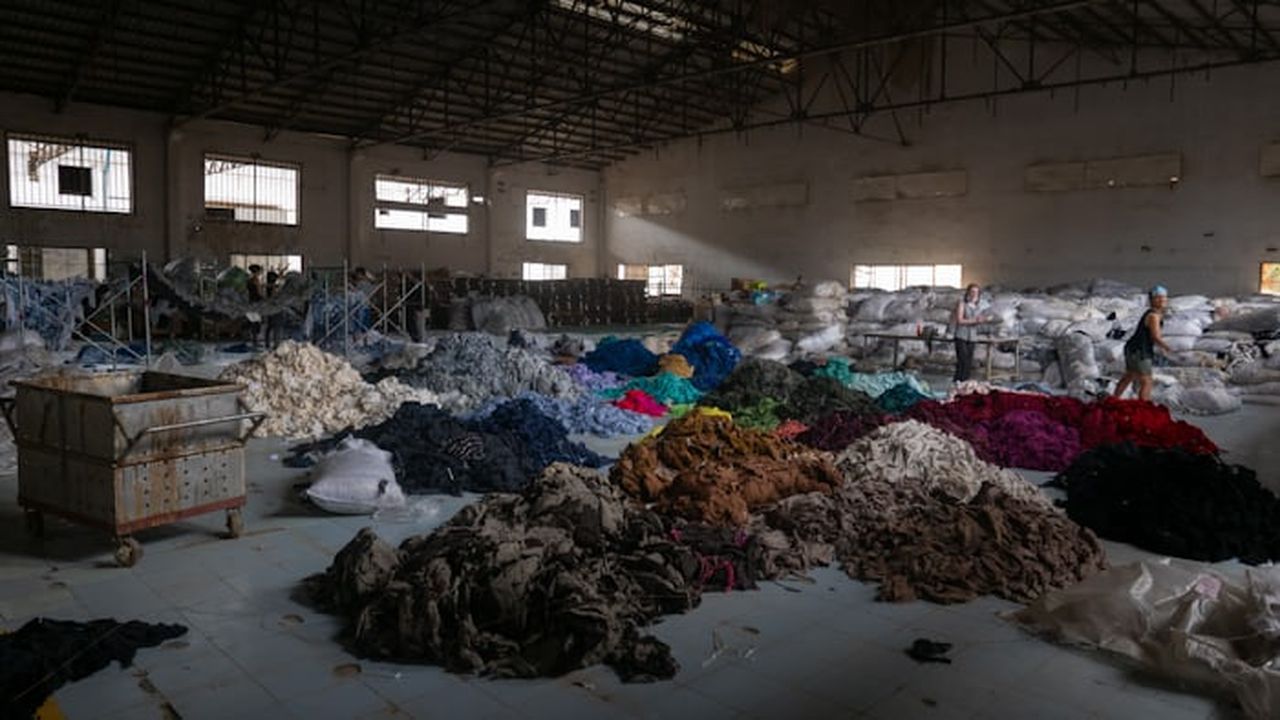 In California, a groundbreaking shift is underway in how apparel, textile, and footwear waste is managed, driven by the newly enacted SB 707. With the state's extended producer responsibility law in motion, key industry players are navigating uncharted territory to shape the future of sustainable waste handling. As CalRecycle prepares to select a Producer Responsibility Organization (PRO) to oversee compliance and implementation, the sector faces pivotal decisions on recycling methods and infrastructure. Join us as we delve into the complexities and opportunities of California's evolving waste management landscape, guided by insights from industry leaders like American Circular Textiles, SuperCircle, and more.
In California, a groundbreaking shift is underway in how apparel, textile, and footwear waste is managed, driven by the newly enacted SB 707. With the state's extended producer responsibility law in motion, key industry players are navigating uncharted territory to shape the future of sustainable waste handling. As CalRecycle prepares to select a Producer Responsibility Organization (PRO) to oversee compliance and implementation, the sector faces pivotal decisions on recycling methods and infrastructure. Join us as we delve into the complexities and opportunities of California's evolving waste management landscape, guided by insights from industry leaders like American Circular Textiles, SuperCircle, and more.
The Implications of California's SB 707 on Circular Economy Initiatives
California's SB 707 marks a significant milestone in the state's journey towards sustainable waste management, particularly within the apparel, textile, and footwear sectors. As the legislation paves the way for extended producer responsibility (EPR), companies like American Circular Textiles and SuperCircle are at the forefront of reshaping industry practices. The impending selection of a Producer Responsibility Organization (PRO) by CalRecycle underscores the critical need for strategic alignment among stakeholders to drive compliance and innovation in recycling methods. With a deadline for full compliance set for 2030, businesses must proactively engage in the legislative process to ensure a smooth transition towards a more circular economy.
The transition towards a circular economy model necessitates a paradigm shift in how companies approach waste management. SuperCircle's emphasis on technology and reverse logistics highlights the growing importance of integrating recycling as a core component of sustainability strategies. By collaborating with leading brands like Reformation and Guess, SuperCircle exemplifies the industry's commitment to driving circularity through innovative waste handling solutions. As the sector grapples with the challenges of scaling up recycling infrastructure, there is a pressing need for robust investment in technologies that facilitate the conversion of textile waste into reusable materials. This shift towards a more sustainable approach not only aligns with regulatory requirements but also underscores the industry's evolving ethos towards responsible resource utilization.
Navigating Regulatory Uncertainties and Technological Advancements
The evolving regulatory landscape surrounding SB 707 poses both challenges and opportunities for companies operating in California's apparel and textile industry. American Circular Textiles' advocacy for inclusive definitions within EPR legislation reflects a broader industry sentiment towards embracing advanced recycling technologies. While mechanical recycling has traditionally been a cornerstone of textile waste management, the limitations associated with degrading fiber quality underscore the need for a more comprehensive approach. By advocating for a holistic and forward-thinking definition of recycling, industry leaders aim to foster an environment conducive to leveraging emerging technologies that can revolutionize material recovery processes.
As companies navigate the complexities of regulatory compliance and technological advancements, the role of stakeholders in shaping policy outcomes becomes increasingly pivotal. SuperCircle's proactive stance on advocating for well-defined EPR frameworks underscores the importance of industry collaboration in influencing legislative decisions. By engaging with policymakers and trade groups, companies can contribute valuable insights that steer regulatory developments towards sustainable outcomes. The convergence of regulatory imperatives with technological innovations presents a unique opportunity for businesses to align their operational priorities with environmental objectives, thereby fostering a culture of sustainability and responsibility across the supply chain.
The Imperative of Strategic Investment in Circular Business Models
In light of the shifting landscape of waste management regulations, companies are compelled to reevaluate their business models to align with circularity principles. American Circular Textiles' emphasis on the need for strategic investments in recycling infrastructure underscores the critical role of financial support in driving sustainable practices. As the industry transitions from a linear to a circular economy paradigm, businesses must prioritize funding initiatives that support recyclers, sorters, and other stakeholders involved in the textile-to-textile recycling chain. By directing resources towards building a robust recycling ecosystem, companies can not only meet regulatory requirements but also cultivate a competitive advantage rooted in sustainable practices.
The evolution of circular business models represents a fundamental shift in how companies perceive and manage their waste streams. SuperCircle's focus on integrating circularity as an operational priority highlights a broader industry trend towards embedding sustainability into core business strategies. By moving beyond pilot initiatives and embracing circularity as a strategic imperative, brands can enhance their market positioning while contributing to environmental stewardship. The strategic redirection of funding towards recycling initiatives not only safeguards against potential disruptions posed by evolving regulations but also underscores a commitment to driving positive change within the industry.
Conclusion
As California propels towards a circular economy with the enactment of SB 707, American Circular Textiles and SuperCircle exemplify the industry's pioneering spirit in reshaping waste management practices. The intersection of regulatory mandates and technological innovations underscores the imperative for strategic investments in recycling infrastructure and collaborative policymaking. Embracing circular business models not only ensures compliance but also fosters a culture of sustainability and responsibility. The time is ripe for industry leaders to seize the opportunity to drive positive change, setting a new standard for sustainable waste handling and resource utilization in the apparel, textile, and footwear sectors.